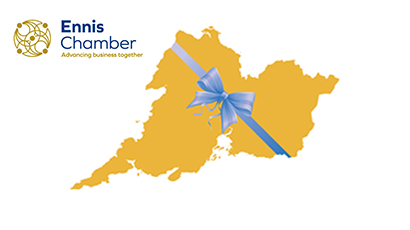Box 1: Consignor (Irish Exporter) Full name and address required. The Consignor must be based within the 26 counties of the Republic of Ireland and must be registered with the Companies Registrations Office. Name and address of the company must be typed in the consignor box. Consignor means the person drawing up the invoice for the goods and/or who is responsible for exporting them.
Box 2: Consignee Full name and address of the purchaser abroad or the words ‘to order’ followed by the name of the country of the final destination if known or by the name of the country of first destination followed by the words ‘for subsequent re-exportation’. Please note that for an EU cert this should be a non-Arab country. If they have completed this for an Arab country you must reject the cert and ask the company to complete an Arab-Irish cert.
Box 3: Country of origin This is the most important box as the origin description is the prime function of the certificate. This box must state the country where the goods originate. It must be noted that goods do not necessarily have to be of Irish origin.
Goods of Community Origin: If the good originates from within the European Community then the wording ‘European Community’ and the specific country must be included. Countries must be written in full – abbreviations such as UK are not accepted.
Goods of third country origin: Insert the name of the third country.
Multiple origins: If there is more than one country of origin, the country of origin must be cross-referenced to the items in box 6. If the space provided in box 3 is insufficient the country of origin shall be clearly and separately stated in box 6 against each item listed in that box and box 3 should state that the country of origin is listed in box 6.
Box 4: Transport Details Although completion of this box is optional, it is advisable to indicate the means of transport to be used (air, ship, lorry etc.). The description ‘mixed transport’ should be used when the goods are to be carried successively by several different forms of transport, as is often the case.
Box 5: Remarks This box may be useful for details which cannot be entered elsewhere and which might be useful in the identification of the consignment (e.g. a reference to certain documents connected with the consignment such as the order number, licence, letter of credit etc.). In order to respect commercial secrecy, it is advisable not to mention the name of the producer or manufacturer of the goods. If the needs of the trade require it, exceptionally, reference to the manufacturer can be made in this box.
Box 6: Description of goods. The goods must be described according to their usual commercial designation in the language of the Member state issuing the certificate. Technical terms for products may also be used.
General descriptions (‘chemical products’, ‘spare parts’, ‘machines’) or a reference to quality etc. are not acceptable. The space in this box is usually sufficient to enable the description of all the goods in a single consignment to be entered. However, if the goods are too numerous to enable them all to be included, a general description can be given:
Followed by the words “as per attached document” giving its number and date; or
One or more certificates of origin may be used which will then be treated as sequels to the first. All of the boxes of any supplementary forms must be completed and the forms must bear the same serial number
Box 7: Quantity column All quantities must be entered using the metric system i.e. lbs or Kgs. In certain trades other units of measurement are more appropriate e.g litres, metres, cubic dimensions or simple quantity. The vast majority of certificates include net or gross weights or both.
Box 8: Issue of certificates This box is reserved for the chamber to stamp with the chamber seal and to include the signatory of the authorised chamber signatory to certify the certificate. The name of the signatory must be repeated in block letters or in typing. A “signature stamp” setting out in clear print the name of the signatory can be of assistance and is used by some chambers. The date must be that of the day on which the certificate is issued.
All duplicate sheets of the form should be kept together and the application must be signed on the final (pink) page by the applicant.
All boxes must be completed – none are optional




